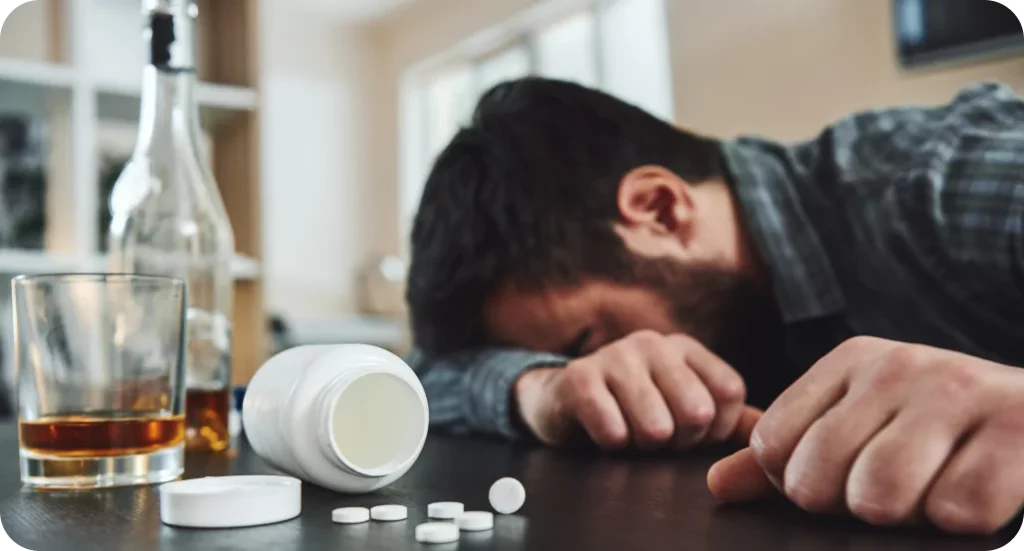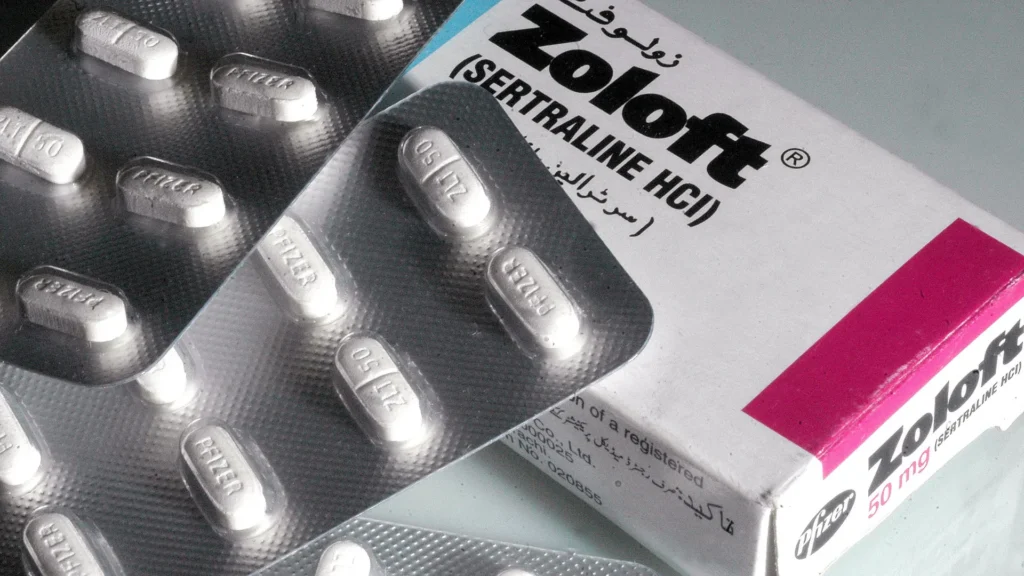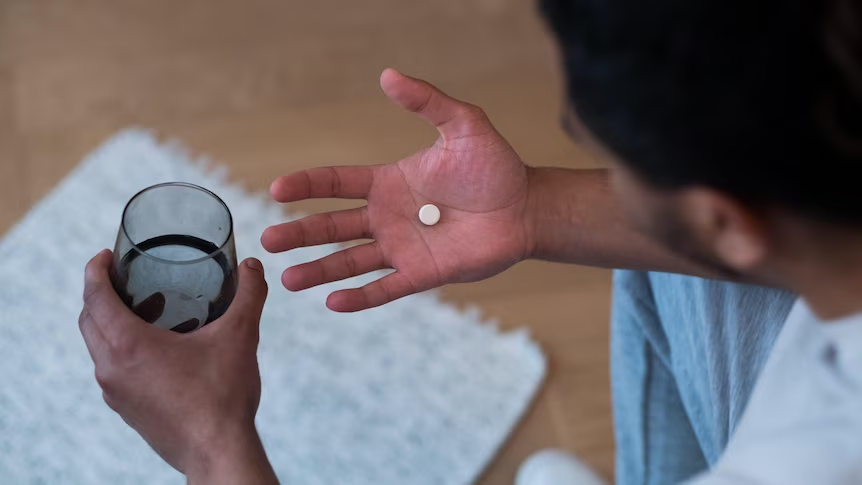Antidepressants can be life-changing—helping to lift the weight of depression and anxiety so many people struggle with daily. But for some, the relief comes with a frustrating cost: delayed ejaculation. This sexual side effect, particularly common with medications like SSRIs and SNRIs, can impact confidence, intimacy, and overall quality of life.
If you’re experiencing this, you’re far from alone—and importantly, you’re not without options. Whether the delay is mild or makes reaching climax nearly impossible, there are evidence-based strategies to manage or even reverse the issue.
Recommended: Natural Ways to Increase Testosterone for Better Male Vitality
In this blog post, we’ll explore why antidepressants cause delayed ejaculation, which medications are most likely to affect you, and the practical steps—medical, behavioral, and lifestyle-related—you can take to find relief without sacrificing your mental health progress.
What Are Antidepressants?
Antidepressants are medications designed to treat depression and a variety of other mental health conditions, such as anxiety, OCD (obsessive-compulsive disorder), and PTSD (post-traumatic stress disorder). These medications work by altering the levels of certain chemicals in the brain, called neurotransmitters, which play a key role in regulating mood, emotions, and mental well-being.

The most common types of antidepressants are SSRIs (Selective Serotonin Reuptake Inhibitors) and SNRIs (Serotonin-Norepinephrine Reuptake Inhibitors). SSRIs, such as fluoxetine (Prozac) and sertraline (Zoloft), work by increasing the levels of serotonin, a neurotransmitter linked to mood regulation, in the brain. SNRIs, like venlafaxine (Effexor) and duloxetine (Cymbalta), increase both serotonin and norepinephrine, another neurotransmitter involved in managing stress and mood.
Recommended: How to Manage Performance Anxiety for Improved Male Intimacy
By balancing these neurotransmitters, antidepressants can help alleviate the symptoms of depression and improve overall mood. However, they are not without potential side effects, and one common issue is their impact on sexual function, including delayed ejaculation or reduced libido.
How Antidepressants Affect Ejaculation
Antidepressants, particularly SSRIs and SNRIs, are known to cause sexual side effects—including delayed ejaculation. These medications work by increasing levels of serotonin in the brain to help improve mood and reduce anxiety. While that’s beneficial for mental health, it can also interfere with the body’s ability to climax. Serotonin tends to dampen the sexual response by slowing down the brain’s signaling to the reproductive system, making ejaculation much harder to reach.
In addition to serotonin, some antidepressants lower dopamine—the neurotransmitter responsible for pleasure and reward. When dopamine is reduced, arousal and orgasm can feel weaker, less urgent, or even emotionally flat. On top of that, antidepressants can disrupt the autonomic nervous system, which is responsible for involuntary functions like ejaculation. This means that even if you’re physically aroused, your body may not respond the way it normally would.
The result is often a delayed, weak, or even absent ejaculation, which can affect sexual satisfaction, relationships, and self-esteem. For some, the issue may improve over time. For others, it may persist unless adjustments are made. The good news is that there are proven ways to manage this side effect, from changing medications to adding supportive treatments and behavioral strategies.
Recommended: Diet Tips for Naturally Improving Male Performance
Antidepressants Most Commonly Associated with Delayed Ejaculation
While antidepressants are effective at improving mood and mental well-being, some can have unwanted sexual side effects, including delayed ejaculation. The medications most often linked to this issue are primarily:
Fluoxetine (Prozac)
Fluoxetine, a widely prescribed SSRI (Selective Serotonin Reuptake Inhibitor), works by increasing serotonin levels in the brain to help manage depression and anxiety. While effective for mood disorders, it can interfere with sexual function by elevating serotonin levels, which in turn suppresses the brain’s signals that are necessary for triggering ejaculation. As a result, many users report delays in ejaculation or, in some cases, an inability to ejaculate at all.
Sertraline (Zoloft)

Like other SSRIs, sertraline increases serotonin in the brain. This often leads to sexual dysfunction, including delayed ejaculation. Although it’s known to be effective for treating anxiety and depression, sertraline’s impact on serotonin disrupts the neurotransmitter balance required for normal sexual response, slowing down the ejaculation process. This side effect tends to be one of the more common complaints for men taking Zoloft.
Recommended: Which Specific Herbs (Like Ashwagandha, Maca, or Tongkat Ali) Are Most Effective for Sperm Quality Improvement?
Paroxetine (Paxil)
Paroxetine is another SSRI frequently associated with sexual side effects, including delayed ejaculation. The drug increases serotonin levels in the brain, which can reduce the sensitivity of the sexual response system. In addition to delayed ejaculation, paroxetine can lead to other sexual issues, such as decreased libido and erectile dysfunction. The high serotonin levels caused by paroxetine can suppress the reflex needed to ejaculate, contributing to these delayed sexual responses.
Venlafaxine (Effexor)
Venlafaxine is an SNRI (Serotonin-Norepinephrine Reuptake Inhibitor), which increases both serotonin and norepinephrine levels in the brain. While it’s effective for treating anxiety and depression, it can disrupt the normal sexual response cycle by elevating serotonin to levels that interfere with ejaculation. Venlafaxine also impacts norepinephrine, which is involved in arousal, further complicating sexual function and contributing to delayed ejaculation.
Duloxetine (Cymbalta)
Duloxetine, another SNRI, works similarly to venlafaxine by increasing serotonin and norepinephrine levels. These neurotransmitters are important for mood regulation and sexual function. However, by boosting serotonin, duloxetine can inhibit the brain’s ability to trigger ejaculation. Like venlafaxine, it also affects norepinephrine, which can diminish sexual desire and arousal, making it harder to achieve climax and leading to delayed ejaculation.
Citalopram (Celexa)
Citalopram is another SSRI that can cause sexual side effects, including delayed ejaculation. It increases serotonin levels, and while it may be effective for managing depression and anxiety, its effects on serotonin can slow down the sexual response, leading to delays in ejaculation. Users of citalopram often report difficulties in reaching climax, even if arousal is otherwise intact.
Recommended: How to Make Sperm Stronger for Pregnancy
Escitalopram (Lexapro)
A close relative of citalopram, escitalopram is another SSRI commonly linked to delayed ejaculation. It works similarly by increasing serotonin in the brain. Escitalopram’s impact on serotonin often leads to sexual dysfunction, including delayed ejaculation, as it interferes with the neurochemical processes required for reaching climax. While it’s effective for treating depression, its sexual side effects can be frustrating for some users.
How to Fix Delayed Ejaculation from Antidepressants
If you’re experiencing delayed ejaculation while taking antidepressants, you’re not alone. This side effect is common, but the good news is that it can often be managed or improved with the right approach. Here are some ways to address delayed ejaculation while still getting the benefits of your antidepressant medication:
1. Talk to Your Doctor
The first and most important step is to discuss your concerns with your healthcare provider. Don’t suffer in silence—delayed ejaculation can affect your mental and emotional well-being, and your doctor can help. Together, you can explore potential solutions, including adjusting your medication or dosage.
2. Switch Medications
If the antidepressant you’re taking is causing significant sexual side effects, your doctor may suggest switching to a different medication. Some antidepressants have lower risks of sexual side effects. For example, medications like bupropion (Wellbutrin) are known for having fewer sexual side effects and may be a better option if delayed ejaculation is a concern.
Recommended: Do Raw Eggs Increase Testosterone?
3. Adjust the Dosage
Sometimes, simply adjusting the dosage of your current antidepressant can help. Taking a lower dose may reduce sexual side effects while still providing effective treatment for depression or anxiety. Your doctor will help determine if this is a viable option for you.
4. Add Medications to Counteract Side Effects

In some cases, doctors may prescribe additional medications to help manage the sexual side effects of antidepressants. For instance, medications like sildenafil (Viagra) or tadalafil (Cialis), typically used for erectile dysfunction, may improve sexual function by enhancing blood flow and arousal. These can sometimes help with delayed ejaculation, even if erectile dysfunction is not a concern.
5. Take Drug Holidays (Under Supervision)
Some people find that taking brief “drug holidays”—where they temporarily stop taking the antidepressant for a day or two—helps reduce the sexual side effects. However, this should only be done under the supervision of a doctor, as suddenly stopping medication can cause withdrawal symptoms or relapse of depression or anxiety.
6. Practice Behavioral Techniques
In addition to medical approaches, certain behavioral techniques may help improve sexual function. Sex therapy or cognitive-behavioral therapy (CBT) focused on intimacy and sexual issues can help you work through emotional or psychological barriers affecting your sexual performance. Techniques like sensate focus (focusing on physical touch and sensation rather than the goal of orgasm) can also help reduce anxiety and improve sexual satisfaction.
Recommended: Best Foods to Increase Sperm Count and Motility
7. Consider Supplementation
Some people find that certain supplements, like L-arginine (an amino acid that supports blood flow) or maca root (an herbal supplement that may enhance sexual function), help mitigate sexual side effects. However, you should always consult your doctor before trying any new supplement to ensure it’s safe and appropriate for your situation.
8. Be Patient
It’s important to understand that some sexual side effects may diminish over time as your body adjusts to the medication. If the issue isn’t causing significant distress or affecting your quality of life, patience may be a simple but effective approach. However, if delayed ejaculation persists, it’s essential to revisit the issue with your healthcare provider.
Conclusion
Experiencing delayed ejaculation as a side effect of antidepressants can be frustrating, but it’s important to know that this issue can be managed. While medications like SSRIs and SNRIs are effective in treating depression and anxiety, they can sometimes disrupt sexual function. The good news is that with the right approach, you don’t have to sacrifice your sexual well-being for your mental health.
By discussing the issue with your healthcare provider, you can explore different strategies such as adjusting the dosage, switching to medications with fewer sexual side effects, or trying other treatments. With patience and the right plan, you can find a balance that works for both your mental health and sexual health.
